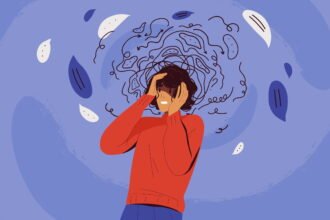As body shape, weight, and general appearance are often viewed as under a person’s control, some people are quick to judge others on their appearance. Also, the media plays a huge role in people’s self-confidence, as it is easy to compare flaws to impossible standards of beauty.
While some people might feel a little unhappy with their imperfections, others might struggle with serious self-esteem issues that affect their mental wellbeing. Continue reading to learn how a negative body image can affect mental health.
Impossible Beauty Standards
The media and social media networks promote various images of idealized body standards for women and men. Due to the celebration of women with slim shapes, youthful complexions, and flawless skin, people of all ages believe they need to be thin, firm, and blemish-free to appear attractive to others. Yet, most of the images online are likely digitally enhanced, which makes users, especially impressionable young women, strive to achieve impossible beauty standards.
However, it is not only women who struggle with idealized standards, as the media often promotes the perfect man as muscular with a flat stomach, a V-shaped body, and narrow hips, which doesn’t reflect many men in society.
Unfortunately, when men and women look in the mirror and compare themselves against these beliefs, they might struggle with insecurities that can gradually destroy their self-esteem and confidence. As a result, they may become more susceptible to a mental health disorder, such as:
- Depression
- Anxiety
- Eating disorders, such as anorexia and bulimia
- Body dysmorphia
When people feel unhappy with their appearance, they may socially isolate, overeat for comfort, or struggle with negative self-talk that can destroy their mood, self-perception, and quality of life.
How to Develop a Positive Body Image
To improve self-perception, a person needs to look beyond their outward appearance and consider their many fantastic qualities. It is crucial to ditch comparisons and bear in mind that appearance is only one aspect of who they are. If a person seeks perfection, they will likely continue to be unhappy with their reflection in the mirror.
If a person makes changes to their appearance, it must be for themselves and not others. If a receding hairline has affected a man or woman’s self-perception since a young age, it makes sense they may wish to restore their locks at a hair transplant clinic. After all, it will allow them to feel like their true selves when they step in front of a mirror. However, if a person strives to lose weight to meet other people’s standards of beauty, they may spend their life chasing a thin, flawless body that feels impossible to maintain.
How to Overcome a Negative Body Image
If you’re struggling with a negative body image that affects your mental health, you must seek professional assistance. Your doctor should be the first port of call when living with an eating disorder, depression, anxiety, or another mental health condition.
Also, it may help to distance yourself from media sources that impact your self-perception and cause you to make comparisons, such as celebrity articles, social media networks, or sites that promote beauty ideals.









